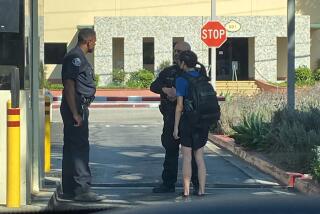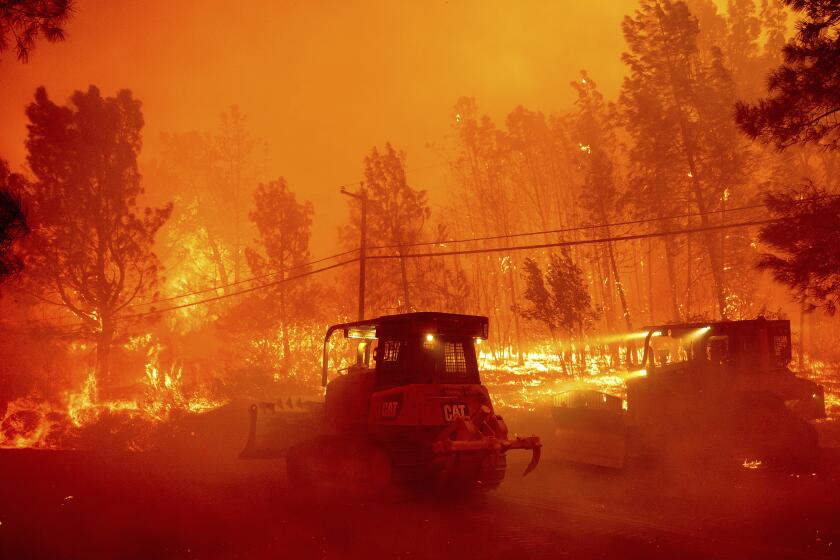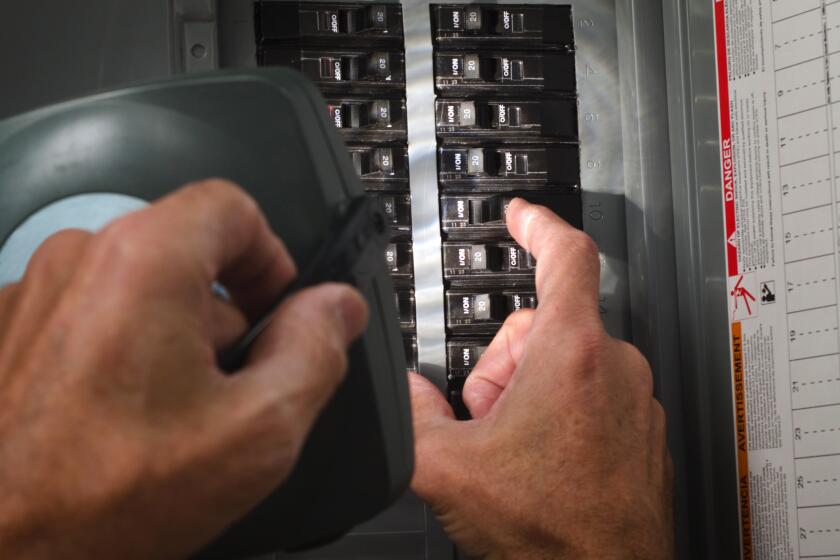Lawsuit by strip club dancers against San Diego police can advance, a judge rules
Exotic dancers who claim they were held against their will and photographed by San Diego police officers during a compliance raid can move forward with their lawsuit, a federal judge ruled this week.
The 24 dancers, who have worked at the Cheetahs or Expose strip clubs, claim the officers violated their constitutional rights during the raids July 15, 2013, and March 6, 2014.
According to the complaint, five to 15 police officers went to the clubs during the early-evening hours and ordered the dancers into a dressing room, where they were told to wait until called, the lawsuit said.
The officers then questioned the dancers, who were scantily clad, checked their city-issued adult entertainer permits, asked about tattoos or piercings and photographed them.
The lawsuit claims some of the officers “made arrogant and demeaning comments to the entertainers and ordered them to expose body parts so that they could ostensibly photograph their tattoos.”
The dancers say the process lasted more than an hour, and when several asked if they could leave, police threatened them with arrest and stationed officers at the exits, the suit says.
See more of our top stories on Facebook >>
Lawyers for San Diego police asked the judge to dismiss the lawsuit, saying the search and seizure was reasonable as laid out by the city’s permitting law, which allows police inspections of adult entertainment businesses. Police have said that cataloging tattoos is an easy way to identify dancers who regularly change their appearances.
U.S. District Judge M. James Lorenz disagreed, saying there are limits.
“Submitting photographs and providing identification during reasonable inspections, to avoid losing a permit, is qualitatively different than stripping down to undergarments, huddling in a dressing room for up to an hour, and submitting to a photo shoot that involved the exposure of intimate body parts, to avoid arrest,” he wrote.
The judge is also allowing the lawsuit to go forward on a false-imprisonment claim and a Monell claim, which can hold supervisors liable for the actions of lower-ranking officers if it can be proven that the behavior was part of a long-standing custom or practice within the Police Department.
Although the judge agreed with the city that three raids within a year don’t amount to a “long-standing” or “widespread” practice, the judge also cited comments by a police spokesman who told the media that such raids were routine.
kristina.davis@sduniontribune.com
Twitter: @kristinadavis
Davis writes for the San Diego Union-Tribune.
ALSO
Father accused of fatally shooting son because he was gay
As prosecution rests, former Undersheriff Paul Tanaka takes the stand
Cab driver who was kidnapped by O.C. jail escapees didn’t get a reward — so he plans to sue
More to Read
Sign up for Essential California
The most important California stories and recommendations in your inbox every morning.
You may occasionally receive promotional content from the Los Angeles Times.






